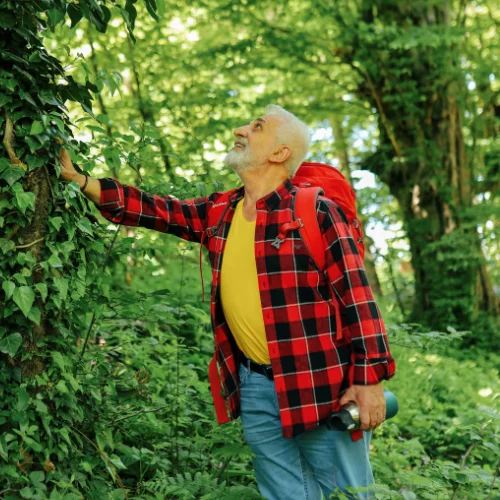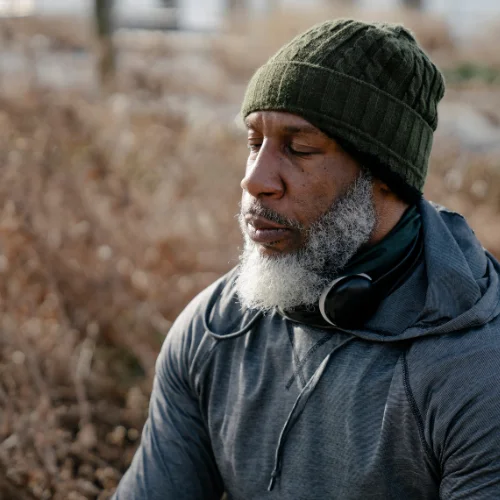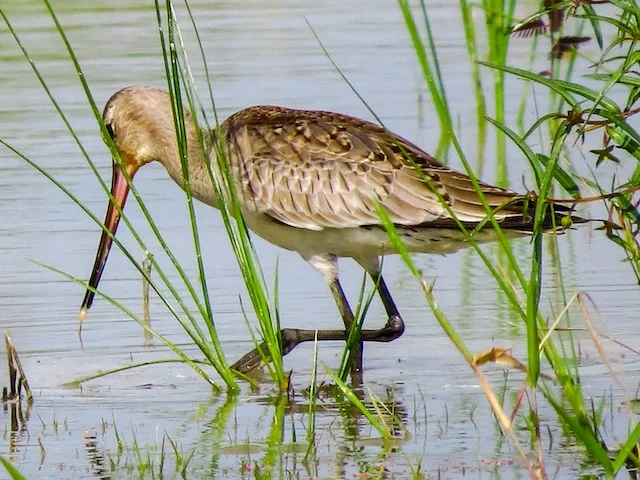10 Benefits of Bird Watching for Seniors
Bird watching is not just a hobby for enthusiastic ornithologists; it’s an activity that offers numerous benefits for people of all ages. In particular, seniors can find great joy and fulfillment in bird watching. The calming presence of nature, the thrill of spotting a rare species, and the opportunity for social engagement make it a perfect pastime for older adults. Join me as we explore ten key benefits that bird watching can bring to seniors’ lives.
Here Are the 10 Benefits of Bird Watching for Seniors
1. Connecting with Nature

In today’s fast-paced world, it’s easy to feel disconnected from nature. Bird watching provides seniors with an opportunity to immerse themselves in the beauty and tranquility of the natural world. Imagine sitting on a park bench, observing a colorful cardinal perched on a branch, or listening to the melodious chirping of finches. Such moments can be incredibly peaceful and grounding, offering a much-needed respite from the daily hustle and bustle.
2. Physical Activity

Bird watching may not require intense physical exertion, but it encourages seniors to get outdoors and engage in gentle exercise. Walking along nature trails or strolling through parks in search of birds provides a low-impact form of exercise that benefits cardiovascular health, joint flexibility, and overall well-being. It’s a great way to stay active without putting excessive strain on the body.
3. Mental Stimulation
Identifying and observing different bird species can be a mentally stimulating activity. Seniors must sharpen their observation skills, pay attention to subtle details, and learn to recognize distinct bird behaviors. This mental exercise helps keep cognitive abilities sharp and improves memory retention. Additionally, the challenge of identifying new species keeps the mind active and curious, fostering a sense of continuous learning.
4. Stress Relief
Life can become stressful as we age, with its share of worries and anxieties. Bird watching provides a calming escape from these everyday pressures. The serenity of nature combined with the excitement of spotting and observing birds can help seniors relax and unwind. Gazing at the graceful flight patterns of birds or listening to their soothing calls can have a profound effect on reducing stress levels and promoting a sense of inner peace.
5. Social Interaction

Bird watching is a wonderful opportunity for seniors to connect with like-minded individuals and build new friendships. Joining local birding clubs or attending group outings introduces seniors to a vibrant community of fellow enthusiasts. Engaging in discussions about bird species, sharing experiences, and participating in group activities create a sense of belonging and foster social connections that are vital for mental and emotional well-being.
6. Sense of Accomplishment
Spotting a rare or elusive bird can evoke a tremendous sense of accomplishment. Seniors can set personal goals, such as observing a particular species or maintaining a bird-watching journal. Achieving these goals provides a boost of self-esteem and a sense of purpose. The thrill of successfully identifying and documenting a unique bird sighting can bring immense joy and a feeling of achievement that transcends age.
7. Enhancing Patience

Bird watching teaches patience—an invaluable quality that often grows with age. It takes time and attentiveness to spot birds and understand their behaviors. Sitting quietly in nature, waiting for that perfect moment to observe a particular species, cultivates patience and mindfulness. Seniors can embrace this slow-paced activity as an opportunity to appreciate the present moment and develop a greater sense of tranquility.
8. Stimulating Creativity

Birds are renowned for their vibrant plumage, intricate songs, and captivating behaviors. Observing these natural wonders can inspire seniors’ creativity. The beauty of a painted bunting’s colorful feathers or the melodious symphony of a mockingbird’s song might ignite a spark of artistic expression. Whether through painting, photography, or writing, bird watching can serve as a wellspring of inspiration for seniors to explore and unleash their creative talents.
9. Environmental Awareness
Bird watching encourages seniors to develop an appreciation for the environment and a desire to protect it. By witnessing the splendor of birds in their natural habitats, seniors become more aware of the importance of conservation efforts. They may advocate for the preservation of local birding sites, support bird-friendly initiatives, and become ambassadors for the protection of avian species. Bird watching thus fosters a deeper connection to nature and a commitment to environmental stewardship.
10. Sense of Wonder and Joy

Finally, bird-watching brings a sense of wonder and joy to seniors’ lives. Witnessing the delicate balance of nature, marveling at the diversity of bird species, and experiencing unexpected encounters with these fascinating creatures can rejuvenate the spirit. Bird watching offers a renewed sense of awe and childlike wonder, igniting a youthful joy that transcends age.
How Can a Senior Person Get Started With Bird Watching?

Firstly, it’s essential to equip yourself with the right tools. Invest in a pair of binoculars specifically designed for bird watching. These will enable you to observe birds from a distance without disturbing their natural behavior.
Additionally, consider getting a field guide or a bird identification app for your smartphone. These resources provide valuable information about different bird species, their distinct features, and where they can be found. By having these tools on hand, you’ll be well-prepared to identify and appreciate the avian wonders around you.
Next, familiarize yourself with the local birding hotspots in your area. Visit nearby parks, nature reserves, or even your own backyard. These places often offer a diverse range of bird species. Take note of the different habitats within these areas, such as forests, wetlands, or grasslands, as they attract specific bird species.
For example, if you live near a body of water, you might spot ducks, herons, or even eagles. By exploring these locations, you’ll increase your chances of spotting a variety of birds.

Patience is key in bird watching. Birds are not always easy to find, and they can be quite elusive. Find a comfortable spot, preferably with a good vantage point, and be prepared to wait. Remember, it’s about enjoying the process and observing nature, so don’t rush. Birds may appear when you least expect them, and the thrill of spotting a rare species or witnessing unique behaviors is worth the wait. So, sit back, relax, and let the birds come to you.
Joining a local bird-watching group or club can greatly enhance your birding experience. These communities often organize outings, walks, or field trips to different birding locations. Not only will you have the opportunity to learn from experienced birders, but you’ll also meet like-minded individuals who share your passion for avian adventures.
Sharing stories, tips, and knowledge with others adds a social aspect to the hobby and creates a sense of camaraderie among fellow bird enthusiasts.
Finally, keep a birding journal or create a digital record of your sightings. Document the date, location, and species you observe. Include any interesting behaviors or noteworthy details. Over time, this record will become a valuable personal reference, helping you track your progress and recall memorable birding moments. It can also serve as a wonderful memento to share with friends and family, allowing you to relive your bird-watching experiences.
Is Bird Watching Safe for Seniors With Dementia?

Bird watching can be a safe and enjoyable activity for seniors with dementia, providing them with mental stimulation and a connection to nature. Firstly, bird watching is a low-risk activity that can be done outdoors, allowing seniors to engage with nature while maintaining a safe distance from potential hazards.
They can observe birds from the comfort of a park bench or their own backyard, minimizing the risk of falls or accidents. In fact, being in nature has been shown to have therapeutic effects on individuals with dementia, promoting relaxation and reducing anxiety.
For example, sitting on a porch and observing birds at a bird feeder can create a calming and peaceful environment for seniors.
To ensure the safety of seniors with dementia while bird watching, it’s important to take certain precautions. Caregivers or family members should accompany them during the activity to provide support and supervision.
It’s also advisable to choose bird-watching locations that are easily accessible and have appropriate facilities, such as accessible paths, seating areas, and accessible bird feeders. Additionally, caregivers should dress seniors appropriately for the weather, considering factors like temperature, sun protection, and insect repellent. That’s all you need to know about the safety aspect of bird watching for folks with Dementia.
Conclusion
Bird watching is a delightful pastime that holds numerous benefits for seniors. From reconnecting with nature and staying physically active to fostering mental stimulation and social interaction, bird-watching enhances the overall well-being of older adults. It’s a rewarding and fulfilling hobby that provides countless opportunities for joy, relaxation, and personal growth.
So why not grab a pair of binoculars, head to your nearest park, and embark on a bird-watching adventure? Join the vibrant community of nature enthusiasts, share your experiences, and let the wonders of avian life captivate your senses.
Have you ever tried bird watching? What were your favorite moments? Share your thoughts and engage with fellow birding enthusiasts in the comments below!
